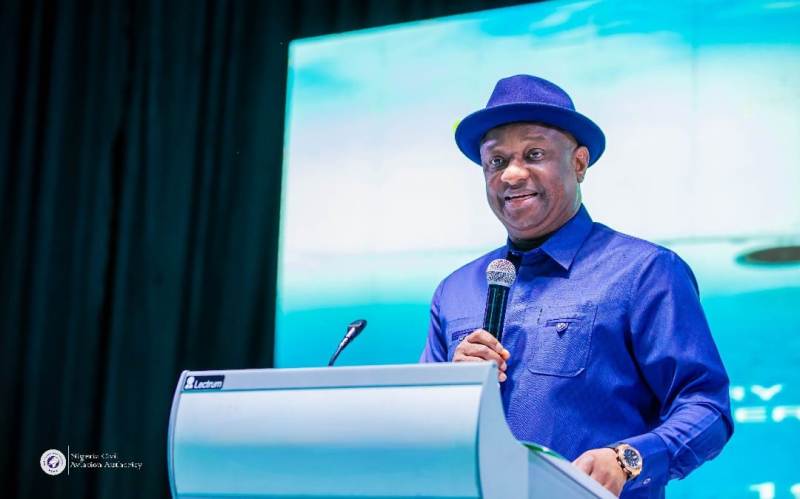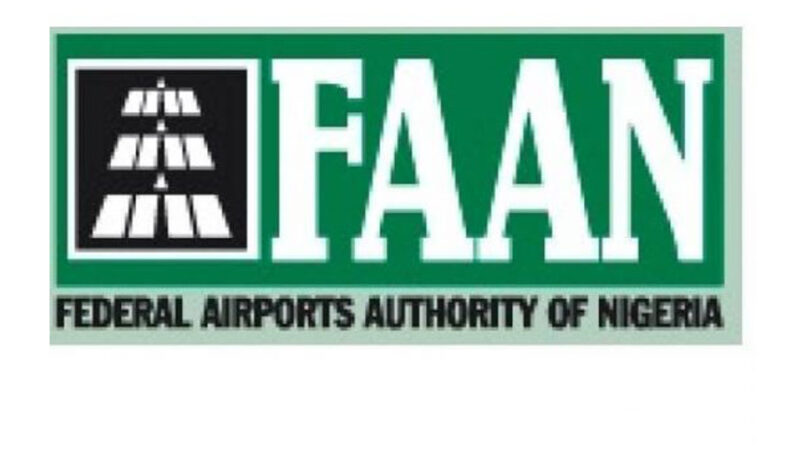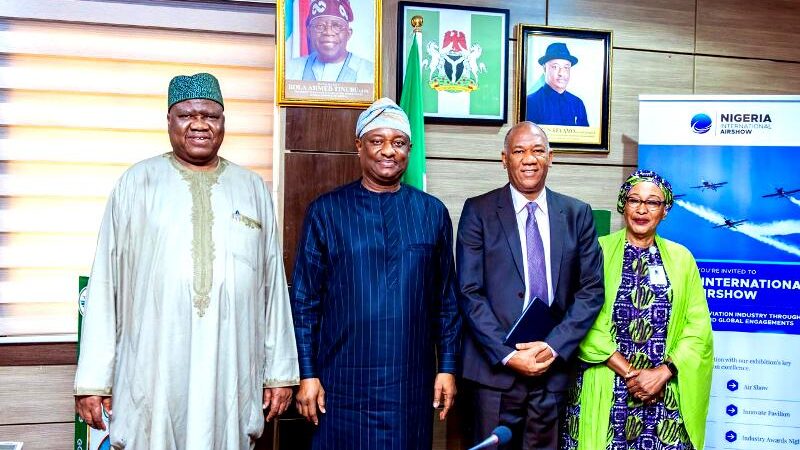Ignoring NSIB Safety Recommendations Leads To Repeated Tragedies, Says Aviation Minister

The Minster of Aviation & Aerospace Development, Mr. Festus Keyamo (SAN) has said that from history, ignoring the safety recommendations contained in the accident reports released by Nigeria Safety Investigation Bureau (NSIB) has contributed to repeat of such occurrences.
Speaking yesterday in Abuja on behalf of His Excellency, President Bola Ahmed Tinubu and the entire Federal Government of Nigeria at the Multimodal Transportation Stakeholders’ Workshop, organized by the Nigerian Safety Investigation Bureau (NSIB) under the theme, Strengthening Transport Safety Standards Through Collaboration, Keyamo said “investigations alone are insufficient; their actual value lies in the adoption of Safety Recommendations. History teaches us that ignored lessons lead to repeated tragedies.
The NSIB’s final reports, which must be published within 12 months for major accidents, provide actionable insights from enhanced crew training to infrastructure upgrades. Stakeholders must prioritize these recommendations by integrating them into policies, allocating resources for implementation, and monitoring compliance. In aviation, we have adopted NSIB’s past suggestions on fatigue management and runway safety, yielding tangible improvements. I call on my counterparts in the transportation and marine sectors to do the same. counterparts in the transportation and marine sectors to do the same. Let us establish inter-ministerial task forces to track and enforce these recommendations, ensuring accountability at every level.”
Present at the event intended to also build a collective commitment of government to fostering a safer and more efficient transportation ecosystem, were the Director-General of NSIB, Capt. Alex Sabundu Badeh Jnr., the Minister of Transportation, Sen. Sa’idu Ahmed Alkali, the Minister of Marine and Blue Economy, Adegboyega Oyetola and other stakeholders from the aviation, rail, marine, and road sectors, including representatives from NIMASA, NRC, NIWA and NCAA.
Speakers were Mr. Dennis Jones, former Managing Director of the U.S. National Transportation Safety Board, Engr. Seyi Sijuwade, former Managing Director of the Nigerian Railway Corporation, and Vice Admiral Dele Ezeoba, retired Chief of Naval Staff.
Keyamo said transportation as the lifeblood of any nation’s economy, connects people, goods, and ideas, driving growth, innovation, and prosperity and that “in Nigeria, our vast network of airways, railways, waterways, and roadways serves as the backbone of commerce and daily life. However, with this connectivity comes an immense responsibility: ensuring the safety of every passenger, crew member, and cargo. Tragically, accidents and incidents in any mode of transport not only claim lives and cause irreparable harm but also erode public confidence and hinder economic progress. This is why today’s Workshop is not just timely but imperative.”
He noted that knows no silos since an incident on a railway can disrupt supply chains that rely on air cargo and a marine casualty can affect inland waterways linked to road transport, adding that “this interconnectedness demands a multimodal approach, where collaboration is not optional but essential. The NSIB, established under the Nigerian Safety Investigation Bureau (Establishment) Act of 2022, embodies this vision. As an independent body tasked with investigating occurrences across aviation, rail, marine, and road transport, the NSIB ensures that lessons learned from one mode inform safety enhancements in others. The draft Regulations of the various modes of transport, which emphasize prevention over blame, serve as a testament to this holistic strategy.
Cooperation among stakeholders is the cornerstone of effective safety management. Regulators, such as the NCAA, NIMASA, NRC, and NIWA, must work hand-in-hand with operators, manufacturers, unions, and international partners. For instance, sharing data on near-misses or contributory factors such as human error, mechanical failures, or environmental conditions can prevent cascading risks across modes. In aviation, we have seen how collaborative efforts with ICAO and other global bodies have reduced accident rates. Similarly, in the rail and marine sectors, joint initiatives on infrastructure maintenance and emergency response can save lives. I urge all of us here today to commit to breaking down barriers: share best practices, invest in joint training programmes, and leverage technology, such as AI-driven predictive analytics, for proactive safety measures.
Equally critical is the timely investigation of occurrences. Delays in probing accidents not only prolong uncertainty for victims’ families but also allow preventable risks to persist. The NSIB’s mandate to commence investigations swiftly within seven (7) days for serious incidents ensures that evidence is preserved, witnesses are interviewed promptly, and causal factors are identified without undue hindrance. Drawing from global benchmarks, such as those from the U.S. NTSB, timely investigations enable rapid dissemination of preliminary findings, allowing operators to implement interim safeguards. In marine safety, for example, the draft Regulations stress the separation of investigations from judicial proceedings, focusing solely on prevention. This independence fosters trust and encourages reporting without fear of reprisal.”






